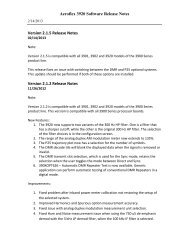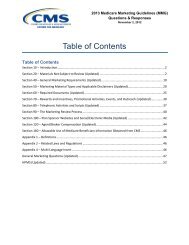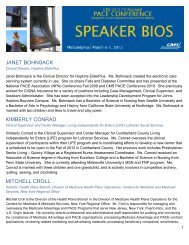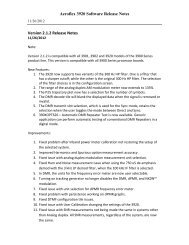White Paper Reforming the Asset-Backed Securities Market - The AMI
White Paper Reforming the Asset-Backed Securities Market - The AMI
White Paper Reforming the Asset-Backed Securities Market - The AMI
Create successful ePaper yourself
Turn your PDF publications into a flip-book with our unique Google optimized e-Paper software.
practices? This is a huge problem that interferes with investors’ ability to make investment<br />
decisions among various deals and issuers. <strong>The</strong> lack of clear standard definitions reinforces <strong>the</strong><br />
complexity from <strong>the</strong> lack of standard contracts in securitization deals, and also makes it harder<br />
for capital markets to function.<br />
Conversely, if everyone is using common language in loan origination and securitization<br />
<strong>the</strong>n it becomes very hard to game <strong>the</strong> system as issuers and servicers have.<br />
6. Directly address conflicts of interest of servicers that have economic interests<br />
adverse to those of investors, by imposing direct fiduciary duties to investors and/or<br />
mandatory separation of those economic interests, and standardize servicer accounting and<br />
reporting for restructuring, modification or work-out of collateral assets. Servicers of<br />
mortgage or o<strong>the</strong>r financial asset pools often have economic interests that differ from those of<br />
investors. Simple contracts between servicers and securitization trustees, which <strong>the</strong>mselves are<br />
subject to little or no accountability to investors, have not sufficiently aligned <strong>the</strong> interests of<br />
servicers to those of investors over time.<br />
Where servicers are charged with enforcing representation and warranty claims on<br />
specific collateral pool assets so <strong>the</strong>y are put back to originator affiliates of <strong>the</strong> servicers at par,<br />
<strong>the</strong> servicers have a conflict of interest and appear to have been delaying in carrying out such<br />
put-backs so as to avoid losses to <strong>the</strong>ir affiliates. Where servicers have affiliates that hold<br />
second lien or mortgage pool residual interests, <strong>the</strong>y appear to have been carrying out <strong>the</strong>ir loss<br />
mitigation duties in ways that delay resolution and <strong>the</strong>reby maximize <strong>the</strong> option value of such<br />
second lien or residual interests, often at <strong>the</strong> direct expense of <strong>the</strong> senior tranche holders.<br />
Investors in asset-backed securities need to know that servicing is being performed in a way that<br />
maximizes <strong>the</strong> present value of <strong>the</strong> entire collateral pool without regard to such conflicts, and this<br />
can only be done if fiduciary duties flow directly from servicers that are sufficiently kept away<br />
from such competing economic interests.<br />
Servicers, securities administrators and trustees must also establish and enforce uniform<br />
accounting policies and procedures for loan restructurings. Since <strong>the</strong> existing securitization<br />
contracts did not contemplate <strong>the</strong> scope and economic impact of <strong>the</strong> modifications being<br />
implemented under today’s environment, it is imperative that securitization accounting in <strong>the</strong><br />
future reflects <strong>the</strong> actual economic impact of <strong>the</strong> modified cash flows associated with <strong>the</strong><br />
restructuring. Where loan modifications involve principal forbearance, <strong>the</strong>re must be recognition<br />
of economic losses that affect how cash flows are allocated within securitizations.<br />
7. Just as <strong>the</strong> Trust Indenture Act of 1939 requires <strong>the</strong> appointment of a suitably<br />
independent and qualified trustee to act for <strong>the</strong> benefit of holders of corporate debt<br />
securities, model securitization agreements must contain substantive provisions to protect<br />
asset-backed security holders. Right now, trustees of collateral pools play a largely passive<br />
role and bear little if any accountability to <strong>the</strong> holders of securities which <strong>the</strong>y have agreed – and<br />
are being compensated – to serve. In practice <strong>the</strong>y do not supervise <strong>the</strong> servicers of collateral<br />
pools, who are often affiliated with <strong>the</strong> loan originators and <strong>the</strong>refore have strong incentives not<br />
to enforce representation and warranty claims on behalf of investors. Trustees have no practical<br />
means of monitoring or reacting to servicer performance, and no incentive to do so.









